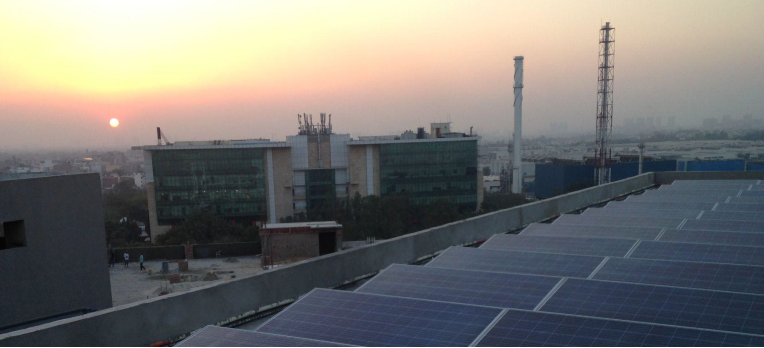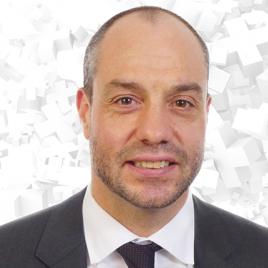As coordinators of REPIC, I would like to ask you to talk more about the new instrument REPIC Rollout.
To start, can you briefly explain what REPIC is and why it was set up?
REPIC is an interdepartmental platform of the federal agencies State Secretariat for Economic Affairs (SECO), the Swiss Agency for Development and Cooperation (SDC), the Federal Office for the Environment (FOEN) and the Swiss Federal Office of Energy (SFOE). In other words, a broadly supported platform where all aspects of sustainability are also represented by the federal agencies. REPIC is active in three fields: Renewable energy, energy efficiency and resource efficiency (circular economy).
In these three fields, REPIC supports project developers from Swiss institutions (e.g. companies incl. start-up’s, universities, NGO’s) with grants and coaching for their innovative, practice- and market-oriented projects. The objective of REPIC is to transfer Swiss knowledge and technology to other countries and to create a win-win situation: On the one hand, specific projects from Swiss institutions are supported, and on the other hand, it is precisely these projects that contribute to sustainable long-term development in the target countries.
What is the impact of REPIC until now?
With REPIC projects 160,000 t of CO2 were saved and with every CHF invested, CHF 1.8 in third-party funds were attracted.
In which regions must projects take place to be eligible to apply for the REPIC?
The projects can take place in developing and transition countries of the OECD-List (DAC list of ODA recipients).
REPIC has two instruments: REPIC Pilot and REPIC Rollout, can you tell us the difference?
REPIC has been promoting and supporting the early and precompetitive phase of projects for 18 years. Since this mostly concerns the piloting phase of projects, these projects are called REPIC Pilot projects.
The new additional instrument REPIC Rollout was introduced in 2022. It aims to support projects that are about to enter the early commercial phase. This extension of scope is a sign of recognition of REPIC as a success story and a result of the objectives of Swiss climate policy, which aims to increase climate-related investments, in particular from the private sector. A funding gap was identified for projects in this high-risk early commercialisation phase.
Who do you think will be the first users of REPIC Rollout and why?
In the first application round (that took place this autumn), we received many applications from former REPIC Pilot applicants. We are happy to receive proposals from former successful REPIC pilot participants, but it is not a condition for the application to Rollout.
The first Rollout Projects could be about sustainable solutions for mini-grids supplied with solar power, solar and energy-efficient water treatment, irrigation systems or solar cooling, small hydroelectric power plants or efficient (solar-powered) mobility solutions.
Whilst it is too soon for examples of projects, thinking back to past REPIC projects do you have some examples of where this new tool would have been useful?
Some of the past REPIC Pilot projects are success stories and achieved market successes - to name just two of them: KOA and candi solar.
It is extremely challenging to grow a business and overcome market barriers in the early-stage commercialisation phase. This is even more the case in the developing- and transition countries where the REPIC projects are active. In the past, REPIC Rollout contributions could have, for example, contributed to the faster dissemination of solar water pumps (Ennos), solar or small hydroelectric power supplies (Zenna, Offgrid, Sahay Solar), smaller solar applications (Solafrica) or solar autonomous centers for the energy and water supply (Weconnex – Nexus).
Which outcomes and what impact would you like to see the REPIC Rollout creating?
Support in the early commercialisation phase leads to the establishment of local production units and distribution as well as business networks. This also includes suitable financing and business models in addition to the necessary after-sales service for successful multiplication. Compared to the pilot phase, the successful handling of larger quantities and units is ensured with regard to sustainable business development (economic, ecological and social). This leads to new income possibilities for the population through new and secure jobs. Finally, access to new sources of energy, clean water, better food supply, medical services or education is ensured. This significantly improves the living conditions of the local population.
Looking forward, are there especially regions or topics you would like to see REPIC Rollout targeting?
The important number of projects we receive for 18 years confirms that there is currently no need to extend our fields of action at the moment. It is assumed that the enquiries in the field of “circular economy” (collection, separation, recycling) will increase strongly since the economic aspects are gaining more weight alongside with the environmental and social approaches. In the medium run, one option might be to broaden the scope of the topic related to resource efficiency, beyond our current areas of action (waste, waste water and industrial processes).
Thank you to Anita Fasel, REPIC coordinator, and Hannes Zimmermann, deputy REPIC coordinator, for the interview.







